Some people struggle with holiday depression. For others, the end of the holiday season and the long, dreary days of winter can be even more challenging—even for those who don’t have clinical seasonal affective disorder (SAD) or depression.
“Somebody who’s just experiencing sort of like seasonal blues might have some good days and some bad days [similar to] somebody with depression,” says Elise Hall, a clinical social worker, and therapist in North Attleboro, Massachusetts. “Even though there might be bright moments throughout their day, [they’re] feeling pretty bad consistently.”
Given the coronavirus pandemic, it makes sense that more people are probably concerned about their post-holiday mental health. In fact, low-grade depression risk, dysthymia, is something to be diligent about right now.
Here are some simple strategies to cope with those feelings during the cold (or not so cold) winter months by getting active, discovering passion projects, and embracing the season.

Try a workout
Exercise is a commonly recognized and effective mood enhancer, explains Hall. “Exercise just really releases natural chemicals in the brain that have an antidepressant quality to them.” Try a new online fitness class, or get outside for a run or walk if the weather allows. (Here’s what to do if you can’t take 10,000 steps a day.)
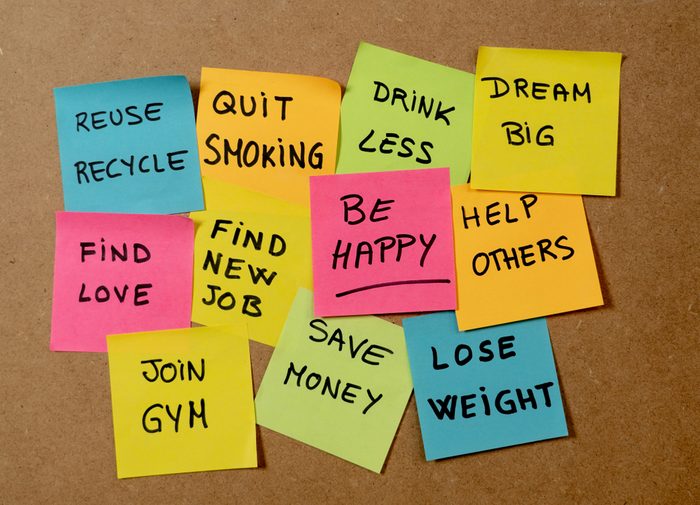
Keep your resolutions realistic
Most people know what it feels like to choose lofty goals, only to come crashing back to earth when those things don’t happen. Keep focused on what you can attain, says Taz Bhatia, MD, an integrative health expert and author of Super Woman RX. “Unrealistic New Year’s resolutions can make someone feel like a failure, but small, definable goals can work to your advantage. It gives us something to focus on post parties, and it’s a great way to jump into the new year.” (Here are the top health mistakes people make in January.)
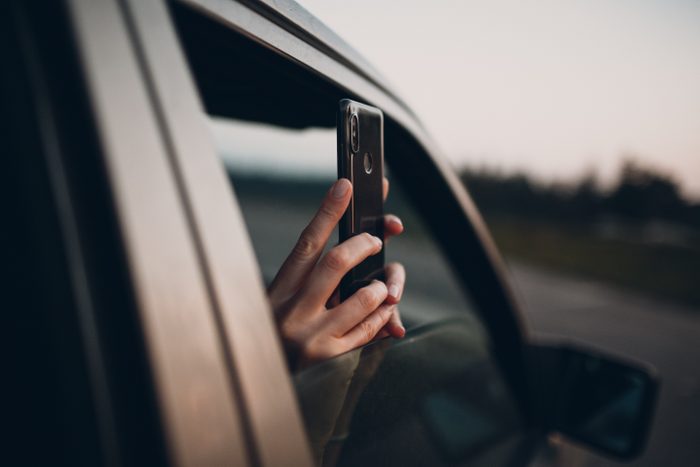
Go on a vacation or staycation
Get away from the stress of the short days and plan a trip—it’s good to have something to look forward to. “Vacations can also improve our mental health by reducing depression and anxiety,” according to the American Psychological Association. “Vacations can improve mood and reduce stress by removing people from the activities and environments that they associate with stress and anxiety.”
Traveling is limited currently due to the pandemic, but taking a mental health day off from work and having a staycation could be just as relaxing. Order takeout from a restaurant you haven’t tried or plan places you’ll want to visit once possible. (Here’s why taking a shorter vacation is good for you.)

Keep yourself busy with friends and fun
Another thing to look forward to? Time with friends, or self-care. “I think creating joy in the weeks that follow the holidays is key,” says Dr. Taz. “Book another dinner with friends, a massage, or start your self-care. Staying around positive people makes a difference as well.” Plan virtual Zoom dance parties. Or order the same food subscription box as your friend and cook the same meal together, virtually.

Write down the good things
“Focusing on the positive with the things that are going well can be helpful for people who are feeling like there’s not much going on in their lives at the moment,” explains Hall, who suggests keeping a list and “writing down and journaling or writing down some positive things about each day.” (Here are expert tips to starting a journal.)
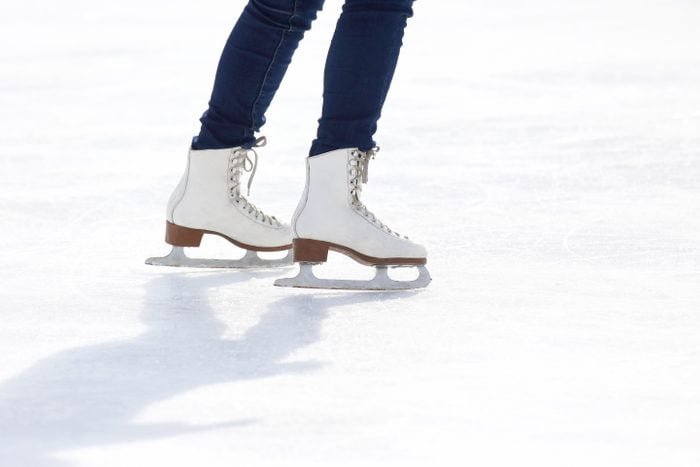
Embrace the season
Change your way of thinking about the dark days with what “therapists call behavioral activation,” says Hall. “Like getting up and doing something that’s enjoyable and sort of forcing yourself into it if you’re not intrinsically motivated. Saying, ‘Okay, the weather’s crappy. I hate the cold and I live in a cold climate, and it’s going to be cold for the next three months. So I’m going to ice skate with some friends and or try something new with people. Maybe go sledding or skiing or something I’ve never done or wouldn’t typically do.'”
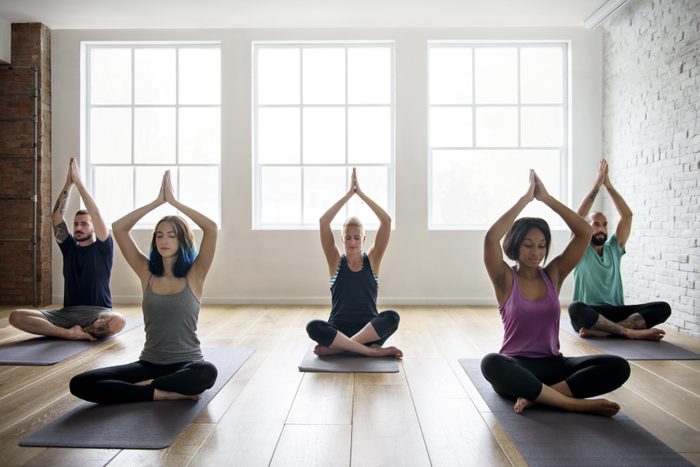
Enjoy slowing down
Most of us are on an intense schedule during the holidays, and when the fracas is over, try some relaxation techniques like gentle yoga or tai chi. According to the National Center for Complementary and Integrative Health, relaxation can help with managing a variety of health conditions, including anxiety associated with illnesses or medical procedures, insomnia, labor pain, chemotherapy-induced nausea, and temporomandibular joint dysfunction.
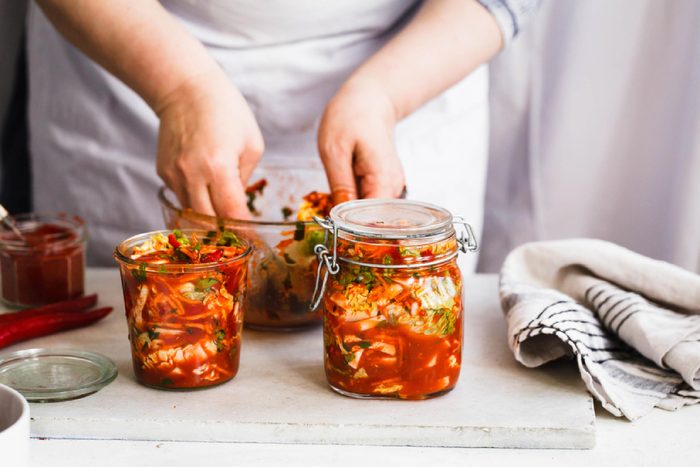
Eat foods that boost your mood
A variety of foods have been found to help your mood by boosting your serotonin production, by nourishing your gut. Try fermented foods like sauerkraut, kimchi, plain yogurt, and kefir all good ways to improve your gut microbiome. Also, try eating meat, poultry, dairy, and legumes (beans) to help boost alertness and fight the winter sluggishness. (Here are the other foods that boost mood.)

Take a vitamin D supplement
Vitamin D plays a role in regulating mood, maintaining optimum blood sugar levels, and boosting our immune systems, but if you live in a place where the sun is limited in the winter, a supplement may help. A study in Psychopharmacology found that when adults with the winter blues were given 400-800 international units of vitamin D3 a day, their mood improved substantially.
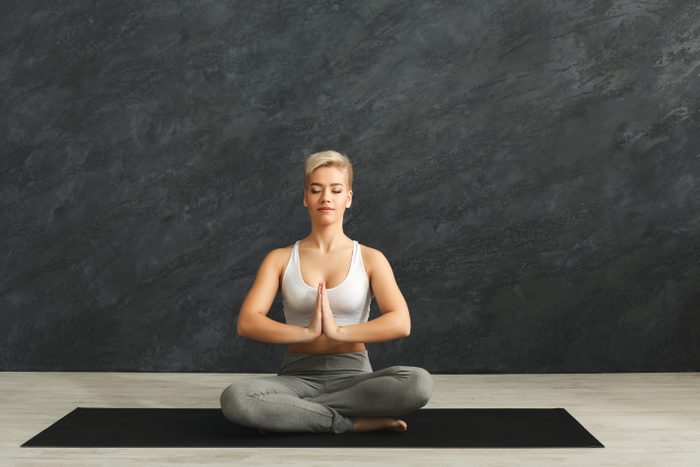
Try a meditation practice
Research suggests that relaxing the body and mind through meditation could lead to increased activity in the left prefrontal cortex, a part of the brain associated with happiness, and decreased activity in brain regions linked to stress. In fact, happiness and a decreased risk for depression are just two of the many benefits of meditation.
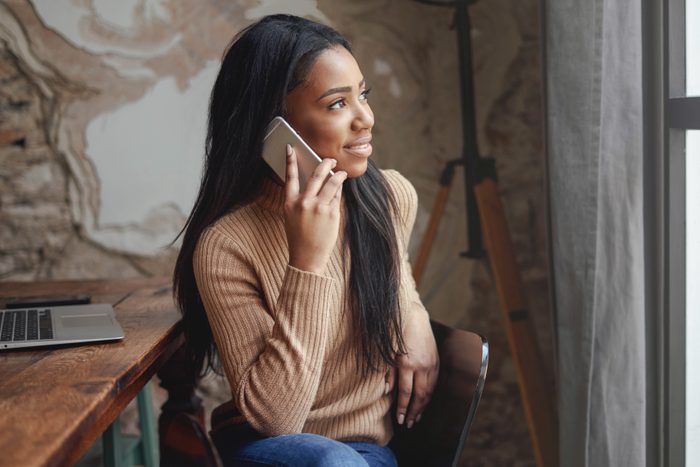
Brighten your environment
Even if you don’t deal with SAD, your body may crave more daylight during the short winter days. Try opening blinds and curtains, trimming back tree branches, and sitting closer to windows can also help provide an extra dose of sunshine. And if all else fails, opt for one of these light therapy lamps.

